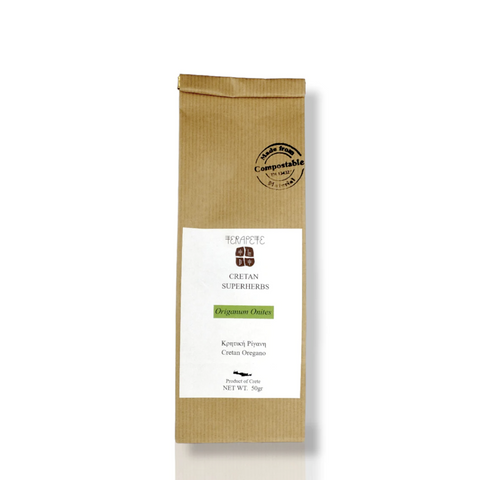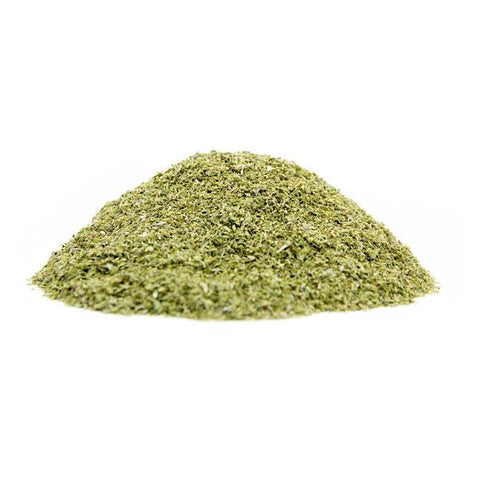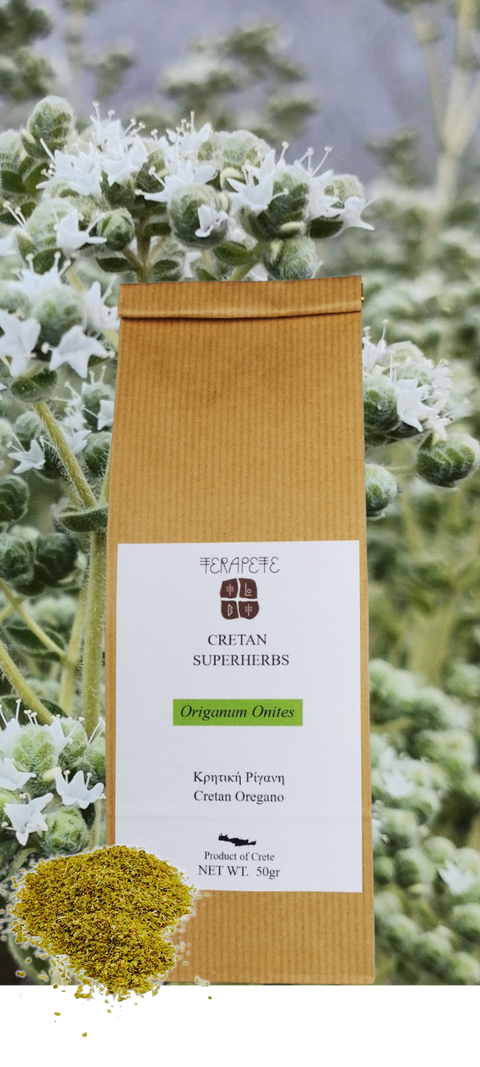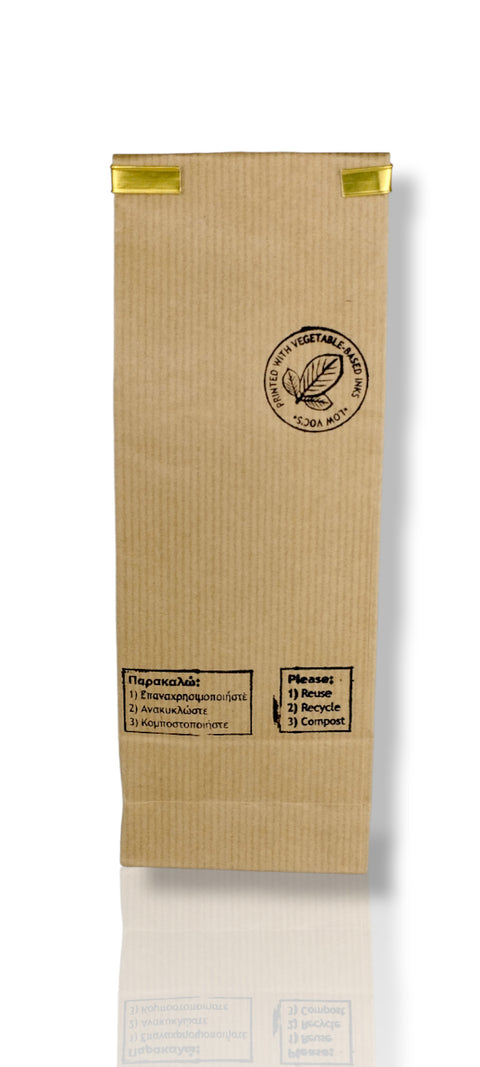



Terapete
Κρητική ρίγανη
Origanum onites , also known as Cretan oregano, is a perennial plant of the eastern Mediterranean region. It is abundantly found in many of the Greek islands of the Aegean, especially in Crete. It is considered to be superior in quality, as an aromatic, medicinal, and culinary herb. The herb's name comes from the Greek word "oregano," which means "Joy of the Mountain."
The leaves of oregano have a robust, woody aroma and a slightly bitter, earthy flavor. The spice was used to flavor meats, fish, and vegetables in ancient Egypt and Greece. Used for thousands of years in folk medicine to treat upset stomachs, respiratory complaints, and bacterial infections. It was also used as a palliative for headaches, rheumatism, and scurvy.
Oregano is high in vitamins C, E, and K, as well as magnesium, zinc, potassium, and iron. It can be brewed as an infusion and it is considered an antioxidant powerhouse, packed with limonene, thymol, carvacrol, and terpinene. They help slow the effects of aging by reducing free radical damage, which can contribute to many health issues and premature aging. They also positively impact your skin, eyes, heart, brain, and cells as well. Oregano also contains powerful anti-inflammatory properties that could help improve chronic inflammation and a long list of diseases, including cancer and Alzheimer's disease.
The two most important compounds, thymol, and carvacrol help fight bacterial infections. Carvacrol has been shown to possess antiviral properties. This enables oregano oil to delay viral disease progression and improve resistance to infections.
Use
Oregano is probably the most commonly used aromatic herb in Mediterranean cuisine, as well as in many Cretan gastronomy dishes such as "dakos", Greek salad, and many more.
Oregano is one of the most versatile herbs and can also be used in tomato sauces, soups, meats, egg dishes, stuffings, seafood, legumes, salads, bread, white cheese, and vegetables. It pairs well with most aromatic herbs like thyme, rosemary, and basil.
TIP : Oregano is best added at the end of each recipe as overheating alters its taste, reduces its aroma, and usually adds bitterness to the food. Sprinkle the oregano, in moderation, at the end of the recipe, rubbing it slightly with your fingers to release all its aromas.
